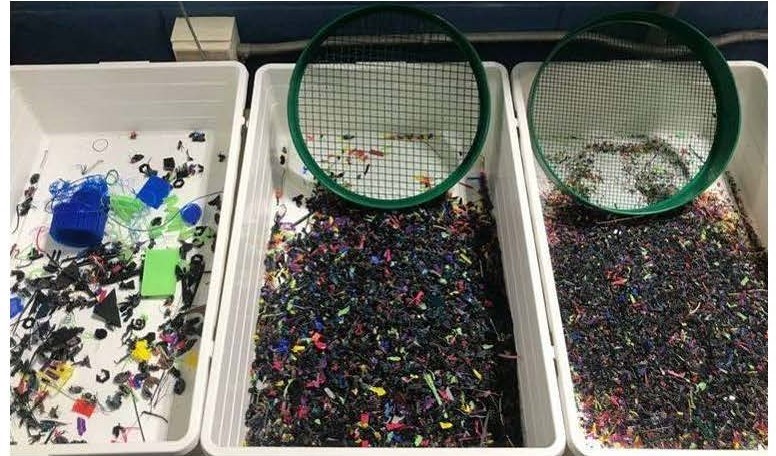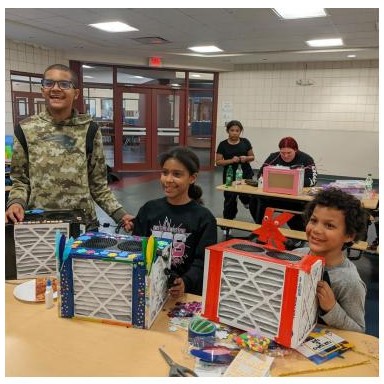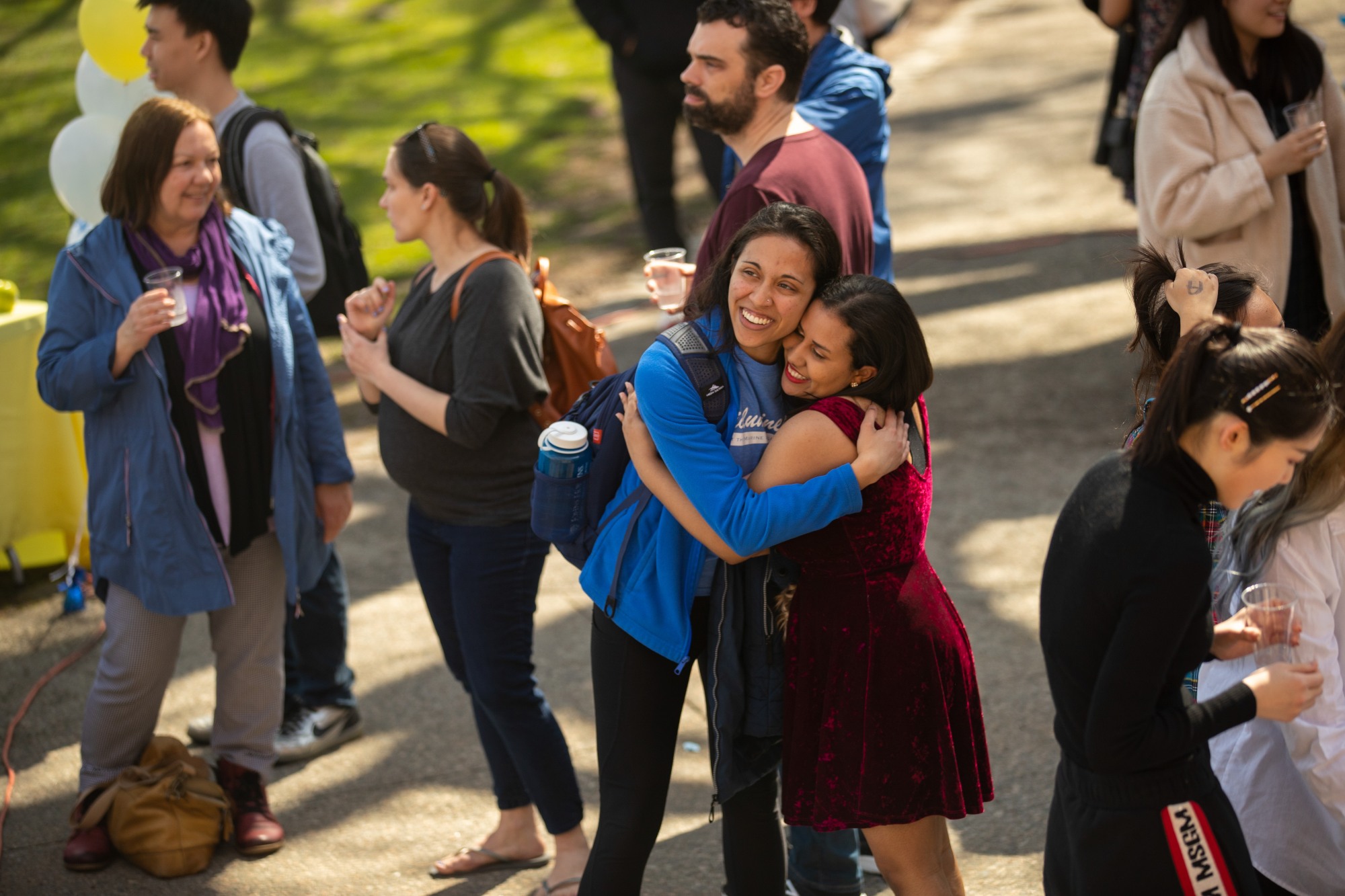Discover Living Labs
From Campus to Community: Brown University's Innovative Approaches to Sustainability Research and Action
Discover Living Labs
From Campus to Community: Brown University's Innovative Approaches to Sustainability Research and Action
Quantifying Carbon Dioxide and Methane Concentrations in Providence
_1.jpg) Summary: Professor of Environment and Society and Earth, Environmental, and Planetary Science Meredith Hastings and her team of researchers in the Institute at Brown University for Environment and Society (IBES) will use a new high-precision monitoring system to continuously track carbon dioxide and methane levels on campus and in the community. This data will help calibrate air quality sensors and support local decarbonization initiatives. The equipment will also serve the Breathe Providence initiative, a network of 25 low-cost sensors installed throughout the city for pollutant tracking. The instrument will ensure calibration of these sensors and establish baseline greenhouse gas concentrations, supporting efforts to measure the impact of decarbonization policies both on campus and within the broader Providence area.
Summary: Professor of Environment and Society and Earth, Environmental, and Planetary Science Meredith Hastings and her team of researchers in the Institute at Brown University for Environment and Society (IBES) will use a new high-precision monitoring system to continuously track carbon dioxide and methane levels on campus and in the community. This data will help calibrate air quality sensors and support local decarbonization initiatives. The equipment will also serve the Breathe Providence initiative, a network of 25 low-cost sensors installed throughout the city for pollutant tracking. The instrument will ensure calibration of these sensors and establish baseline greenhouse gas concentrations, supporting efforts to measure the impact of decarbonization policies both on campus and within the broader Providence area.
Impact: The data will inform greenhouse gas mitigation strategies and contribute to the Providence Climate Justice Plan, addressing urban methane leaks and aging infrastructure. South and Central Providence, for instance, suffer from higher asthma rates linked to pollution, making hyper-local monitoring vital for health equity and environmental justice.
Community Partners: IBES, Brown University, City of Providence
The RE-PLASTIC Program

Summary: A joint initiative between Brown Design Lab and Rhode Island Hospital, RE-PLASTIC explores recycling 3D print waste into reusable filament, promoting sustainability and STEAM education. To recycle the 3D print waste, the program involves a multistep process: collecting and sorting waste, shredding it into granules, and extruding it back into filament. The recycled filament will be monitored for quality and made available for reuse in various academic and community labs. The program also includes partnerships with local groups to promote STEAM education and engagement in recycling technologies, with the potential to influence future sustainable practices in academia and industry.
Impact: The RE-PLASTIC living lab demonstrates a successful, scalable approach to reducing 3D print waste by transforming it into reusable filament, effectively closing the loop on plastic waste within a makerspace community. The lab supports hands-on STEAM education, involving students and community members in sustainability practices while enhancing 3D printing capabilities. The initiative has achieved a 92.1% efficiency rate in recycling 3D print PLA waste, highlighting its potential as a model for sustainable innovation in educational and local settings.
Community Partners: Brown Design Lab, Rhode Island Hospital
Increasing Indoor Air Quality to Improve Human Health

Summary: Professors Joseph Braun and Erica Walker from the School of Public Health led a research project to improve indoor air quality at Brown and in Rhode Island using DIY Corsi-Rosenthal Boxes (CR), which filter pathogens and pollutants. CR Boxes offer cost-effective air filtration, helping reduce indoor pollutants like COVID and wildfire smoke. Participants can attend workshops to build their own CR Box and join a related study.
Impact: Over thirty faculty, staff, and students participated in three on-campus workshops to construct these air filters, promoting community engagement and practical skill-building. Beyond campus, a virtual Build-A-Box event was held for East Palestine, Ohio, supporting a community impacted by the Norfolk Southern train derailment. To further expand access, a step-by-step video guide was created to demonstrate how to build a mini Corsi-Rosenthal Box, enabling individuals to improve indoor air quality in various settings.
Community Partners: Brown School of Public Health, Rhode Island community
Calculating Baseline Emissions for Brown Study Abroad Program

Summary: Led by Brown's Office of Global Engagement, (OGE) this project seeks to calculate the carbon footprint of its study abroad programs. A Climate Action Working Group within OGE will spearhead this effort by researching tools and best practices for emissions tracking. Using the Brown in Bologna program as a pilot, the project will develop a methodology for calculating emissions from student travel, program-sponsored activities, and facility operations.
Impact: The study will create a new process for measuring and mitigating emissions across all study abroad centers, integrating climate awareness into OGE's planning. The project supports the University's Sustainability Strategic Plan to reduce greenhouse gas emissions, particularly Scope 3 emissions from international travel.
Community Partners: Brown Office of Global Engagement, Brown in Bologna